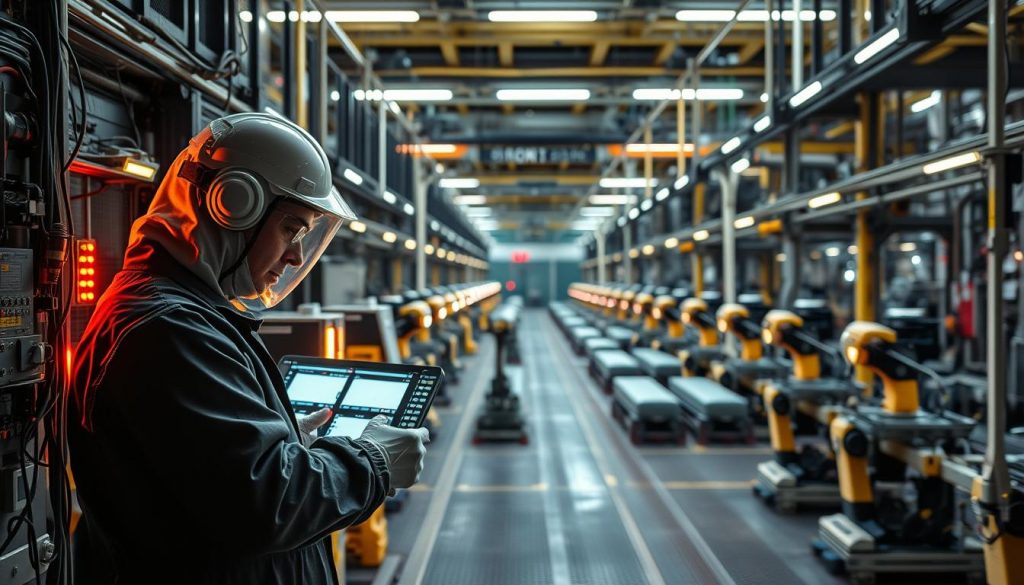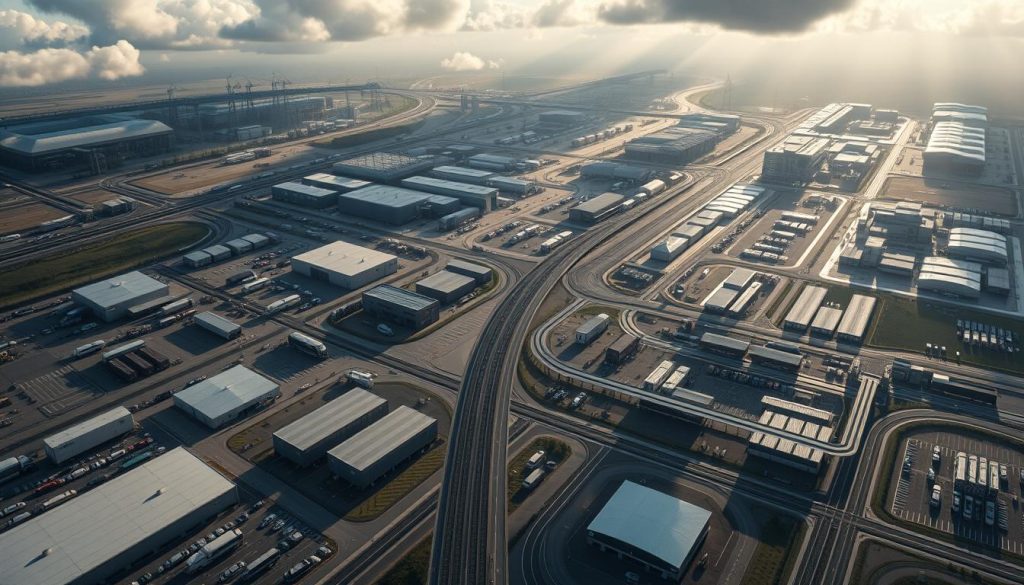How much can a state-backed guarantee do to stop a major car manufacturer from unraveling? The August cyber-attack forced Jaguar Land Rover to suspend production at Solihull, Wolverhampton, and Halewood for weeks.
The halt froze retail and production systems, paused orders to 700 suppliers, and cost an estimated £50 million per week.
The government’s move is to underwrite a £1.5bn credit facility via the Export Development Guarantee (EDG) — a bank lends and the state guarantees repayment, not a direct cash injection.
The facility aims to clear a backlog of payments, ease immediate cash pressure, and protect roughly 30,000 direct workers and up to 120,000 across the wider supply chain.
With production restarting in stages and some IT systems back online, the key question remains whether rapid disbursal of funds will stabilise suppliers in the West Midlands, Merseyside, and beyond, or merely buy time against rising cyber threats.
Key Takeaways
- Major cyber-attack halted production and hit cashflow hard.
- The EDG will underwrite a £1.5bn credit facility — a guarantee, not direct taxpayer cash.
- Orders to 700 suppliers paused, risking liquidity across tiers.
- About 30,000 direct jobs and many more in the supply base are at stake.
- Rapid distribution of funds and safe operational restart will determine success.
The Crisis and the Lifeline: Cyber attack Fallout, £50m Weekly Losses, and the Government’s EDG-Backed Guarantee
An August cyber incident took core factory and retail IT offline on 31 August, stopping output at Solihull, Wolverhampton, and Halewood.
The shutdown cost about £50 million per week while orders to roughly 700 suppliers were paused. Small firms told MPs some had only days of cash left, risking collapse across the wider supply chain, affecting thousands in the automotive sector.
The state will underwrite a £1.5bn credit line via the Export Development Guarantee: a commercial bank provides the finance while the government bears repayment risk. This is a guarantee, not a direct cash injection to the carmaker, reflecting the critical role of government underwrite in stabilising the manufacturing industries in UK.
Business Secretary Peter Kyle said the facility is aimed at keeping payments flowing to suppliers, and Chancellor Rachel Reeves stressed protection for jobs in the West Midlands and Merseyside, highlighting the importance of this initiative in the latest technology news UK.
“The priority is to drive cash through the chain and protect skilled jobs,”
The incident sits alongside other UK attacks this year, including activity linked to Scattered Lapsus$ Hunters, underlining growing cyber threats to manufacturers and suppliers alike.
The Immediate Impact: Stabilising the JLR Supply Chain and Restart Timelines
The move focuses on clearing arrears to keep the parts chain intact ahead of restarts. EDG-backed credit is structured so banks lend while the state underwrites repayment risk, with terms that push cash down to tier-one and lower-tier suppliers.
How the credit facility is intended to flow
The facility prioritises overdue invoices so suppliers receive payments quickly. Contract conditions aim to ensure liquidity reaches those making key components, allowing them to meet payroll and supplier invoices.

Manufacturing industry update
Staged IT recoveries have restored payment processing, service parts distribution and the ability to dispatch finished vehicles from stock, which is crucial in the latest manufacturing industry news. That means some suppliers now see funds and aftermarket mechanics can access parts.
“Speed is essential: many small businesses face end-of-month bills and cannot wait for lengthy admin,”
Restart horizon
Full production at UK facilities is not expected before early October. Reports indicate the Wolverhampton engine site could target tests around 6 October. Rapid disbursal and testing are both needed to support a steady ramp-up.
| Item | Current status | Impact on the chain |
|---|---|---|
| Supplier payments | Backlog targeted for clearance | Reduces insolvency risk for parts makers |
| IT systems | Staged restarts restore transactions | Enables dispatch and receipts |
| Production restart | Early October, earliest; site tests planned | Dependent on parts flow and safety sign-off |
Will Government’s £1.5bn Loan Secure JLR’s Future? Find Out Now
Jaguar Land Rover’s five‑year, £15bn electrification plan frames the crisis as more than a cash problem—it is a test of industrial strategy.
The EDG‑backed guarantee aims to keep payments moving through a vast JLR supply chain that is heavy with SMEs and supports about 34,000 UK employees.
At best, the 1.5 loan guarantee buys time by easing immediate liquidity stress and protecting jobs across the West Midlands and dealer networks.
Solution or stopgap?
Structural risks remain: thinly capitalised suppliers, possible component bottlenecks, and slow fund distribution could undo short‑term gains.
Ministers have not ruled out additional measures such as targeted Covid‑style loans or time‑limited furlough to shield vulnerable firms and preserve skills.
Cyber resilience is now central. JLR is working with NCSC, police, and specialists to raise supplier security standards and incident response maturity.

| Focus | Near‑term effect | Metric of success |
|---|---|---|
| Cash flow | Clears arrears to suppliers | Fewer insolvencies in the supply |
| Operational continuity | Supports staged restart | Stable parts availability |
| Strategic roadmap | Protects investment timeline | On‑track 2030 product deliveries |
“The real test is whether the package prevents insolvencies, keeps parts moving, and safeguards jobs,”
Conclusion: Will Government’s £1.5bn Loan Secure JLR’s Future? Find Out Now
The EDG-backed credit facility is a necessary stabiliser, but its value depends on speed. Rapid cash reaching suppliers and visible parts movement are the first proof points that the package will support supply chain health in the manufacturing industries in the UK.
Ministers and the business secretary have framed the move to protect skilled jobs in the West Midlands. Peter Kyle has emphasised that clarity on conditions and quick disbursal matter most; Kyle said loan terms must drive payments down the tiers to support supply amidst potential risks like a cyber attack, which is why staying updated with the latest cyber security news is crucial.
If invoices clear and production can safely resume in early October — with Wolverhampton testing soon after — the intervention will have worked as intended. Ongoing work on cyber resilience and targeted backstops may be needed to protect firms and people while lenders and investors watch for the real‑world impact of the loan guarantee.
For more Manufacturing articles, please follow the link.


